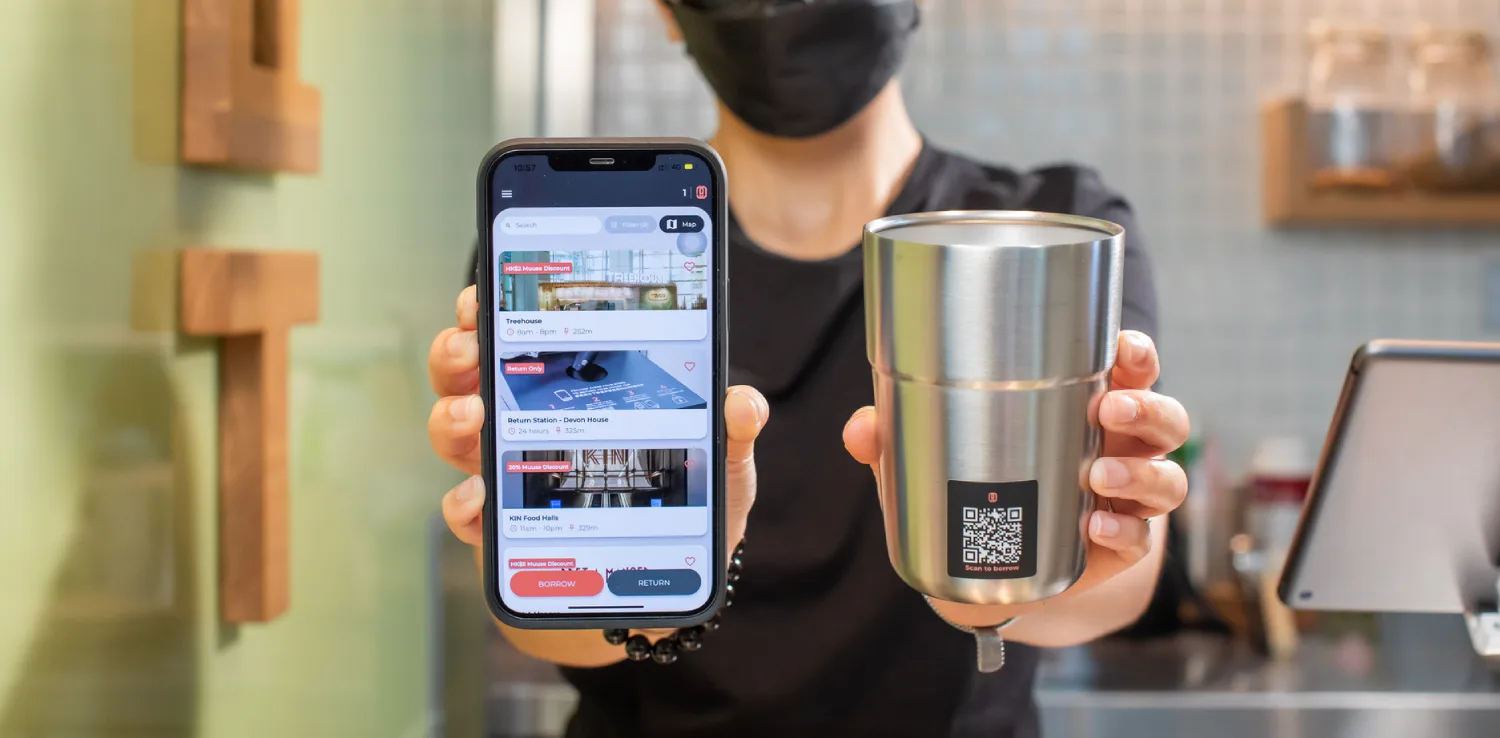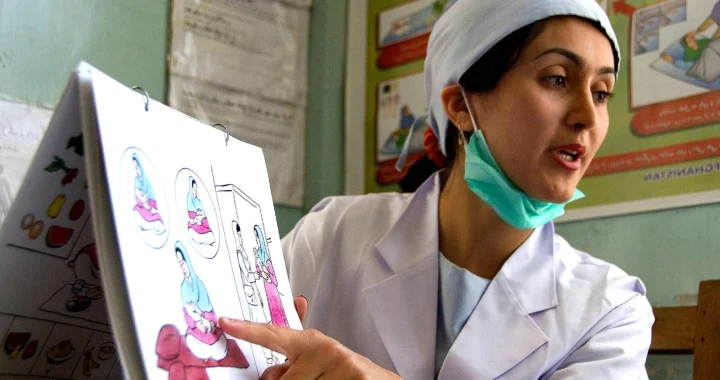An Interview with Jonathan Tostevin, Chief Executive Officer at Muuse

Jonathan Tostevin, Chief Executive Officer at Muuse. | Source: Muuse.
Can you tell us about your organisation and your current role?
Muuse, which stands for ‘multiple use’, is a platform for renting and returning food and beverage takeaway containers as substitutes for plastic containers. Muuse intends to achieve this through trusted, data-driven reuse systems.
So far, we have diverted over 200,000 single-use items from landfills with large-scale events and festivals, working with MNCs, cafes, corporations, and municipalities. I have been with the company since the early days of our first few pilots in Bali and San Fransisco. Two years ago, I took over as CEO.
What are your corporate sustainability commitments and goals?
Our core business objective is to reduce packaging waste from landfills. We recently completed a life cycle analysis of our program, in which the results demonstrated that our reuse system can reduce carbon emissions by up to 80% compared to single-use alternatives. We are an upstream solution, which means we intervene before the waste gets created and build on circular economy principles to maximize the resources we have on our planet.
What have been your most difficult challenges in achieving those goals?
System change is rarely easy. Over the past 40-50 years, the linear model of single-use packaging has been honed and refined to operate with incredible operational and cost efficiency. It is so ingrained in our economies that we take it for granted. Yet, the cost of managing the environmental impacts of this system is borne by us all as a society. Unpicking these systems is incredibly challenging. Regulation and other market interventions will help accelerate the change.
Still, until that time, we rely on consumers, vendors, and businesses to choose a better model, which, in the short term, comes with operational costs and change. To help make this transition, we price our service competitively with mid-range single-use packaging, and we design our system to reduce as much friction as possible. Our high-quality reusable packaging offers a better eating or drinking experience than low-quality plastics. In addition, we are building out more gamification and rewards to provide other positive touch points within the system.
What opportunities do you see to address those challenges?
Several countries have begun introducing initiatives related to single-plastic packaging use. For example, Hong Kong will take its first step in banning single-use plastic packaging from April 2024. Singapore will be introducing its Extended Producer Responsibility for packaging starting in 2025. These initiatives force businesses to look at their waste footprint and devise solutions for it. Apart from mandating action, interventions like these signal to the market that they need to take action. In the past 12 months, we have witnessed that we can now have meaningful conversations about our solution in a way that was generally impossible before.

What are the ESG material (environmental, social, and governance) issues that your organisation focuses on, and how do you integrate them into your corporate sustainability?
We specifically focus on delivering positive environmental impact by reducing waste to landfills and associated carbon emissions from packaging. In the long run, we understand this as contributing to helping keep our planet liveable. As a small team, we offer our employees flexibility, autonomy, and responsibility in how they do their work. We believe this is important to ensure our workforce remains healthy and motivated in their role.
How do you communicate sustainability strategy and initiatives to internal and external stakeholders?
Our business objectives are our sustainability objectives. We are a global team across multiple time zones, but we meet once a month to review progress against our targets, with deeper dives at a quarterly cadence. Externally, we report primarily on the number of single-use items we have diverted from landfills.
Externally, we try our best to work with partners and suppliers who will support our wider sustainability objectives. We source our packaging from the open market, having tried out a few different materials, and now solely work with polypropylene plastic and stainless steel as the two materials that perform the best when considering function alongside sustainability. Our cups use 75% recycled stainless steel, and some of our food boxes now use recycled polypropylene, further decreasing their environmental footprint. We recently completed a Life Cycle Analysis of our service to understand the carbon footprint and where the largest contributors are. We have since changed how we manage the end-of-life of our reusables – working with local lower-intensity upcycling partners rather than shipping to industrial recycling centers. Demand from clients like us for these services provides our partners with the commercial justification to make these changes, which builds on itself.
When sharing our impact with our customers, we focus on two key metrics: packaging diverted from landfills and reduced carbon emissions. As more and more companies care about their Scope 3 emissions, we’re seeing more and more interest in understanding their carbon impact.
Whilst we operate a B2B business model, we are aware that the consumer experience is really important to our customers, so we also develop our system and service with these touchpoints in mind.
What were the most exciting initiatives and progress that you and your team have done in 2023?
We were incredibly pleased to launch a partnership with a global coffeehouse chain in Hong Kong. We helped them create a reuse platform for a branded returnable cup to be borrowed and returned between stores. We are now in 25 stores island-wide, with plans to expand beyond in 2024.
In addition, we are also proud to be part of an inaugural Asia sustainability accelerator for a multinational beverage brand. We look forward to building programs with them across Asia-Pacific next year.
Overall, we have seen significant growth in the past year. We launched our first reuse program at a Hawker Centres in Singapore. Now, we have doubled the total number of reusable containers borrowed through our platform and are on our way to tripling our revenue from last year.
What are the lessons you learned from your sustainability efforts in 2023?
In 2023, our journey at Muuse taught us that sustainability thrives on strategic pivots and finding the right opportunities to take the next step forward. Shifting from a B2C to a B2B model, we discovered that aligning with businesses and removing our subscription fee for consumers enhances accessibility and elevates our impact. Prioritizing convenience through local solutions proved successful by focusing on specific locations and working with partners to improve the experience in those areas.
The key lesson is that sustainability is not a solo endeavor. It is about fostering partnerships with your suppliers and clients, inspiring collective action, and evolving to meet the dynamic needs of both businesses and individuals. Muuse is not merely a platform; we seek to be a catalyst for a systemic change—one where every reusable container tells a story of positive change.
What are your plans for your sustainability efforts in 2024?
We plan to expand across Asia and North America, with a target of diverting over one million pieces of single-use packaging from landfills. We want to grow our white-label platform, where we provide the software and service for reuse to brands and municipalities. We see huge potential for growth here.
If you were to share advice you learned in your role that may be helpful to your peers and sustainability practitioners around the world, what would that be?
Honestly, the key lessons I have learned in this role have more to do with the challenges that any start-up faces. Testing, learning, and running pilot projects are important, but it is also important to stop and learn. Like any new business in a nascent sector, there are going to be a lot of “nos” and a lot of resistance. You need persistence and resilience to take on each one as they come. I would say that it is important to find the right partners to work with and that they are committed to making the program a success without merely seeing it as a marketing tool.


 Looking into the Global Midwife Shortage
Looking into the Global Midwife Shortage  Reframing Governance in the Era of Water Bankruptcy
Reframing Governance in the Era of Water Bankruptcy  Strengthening Resilience amid Growing Dependence on Space Infrastructure
Strengthening Resilience amid Growing Dependence on Space Infrastructure  Indian Gig Workers Push Back Against 10-Minute Delivery Service Strain
Indian Gig Workers Push Back Against 10-Minute Delivery Service Strain  Call for Governance: Grassroots Initiatives Look to Scale Efforts to Conserve Depleting Groundwater
Call for Governance: Grassroots Initiatives Look to Scale Efforts to Conserve Depleting Groundwater  Integrating Environment, Climate Change, and Sustainability Issues into Education Systems
Integrating Environment, Climate Change, and Sustainability Issues into Education Systems